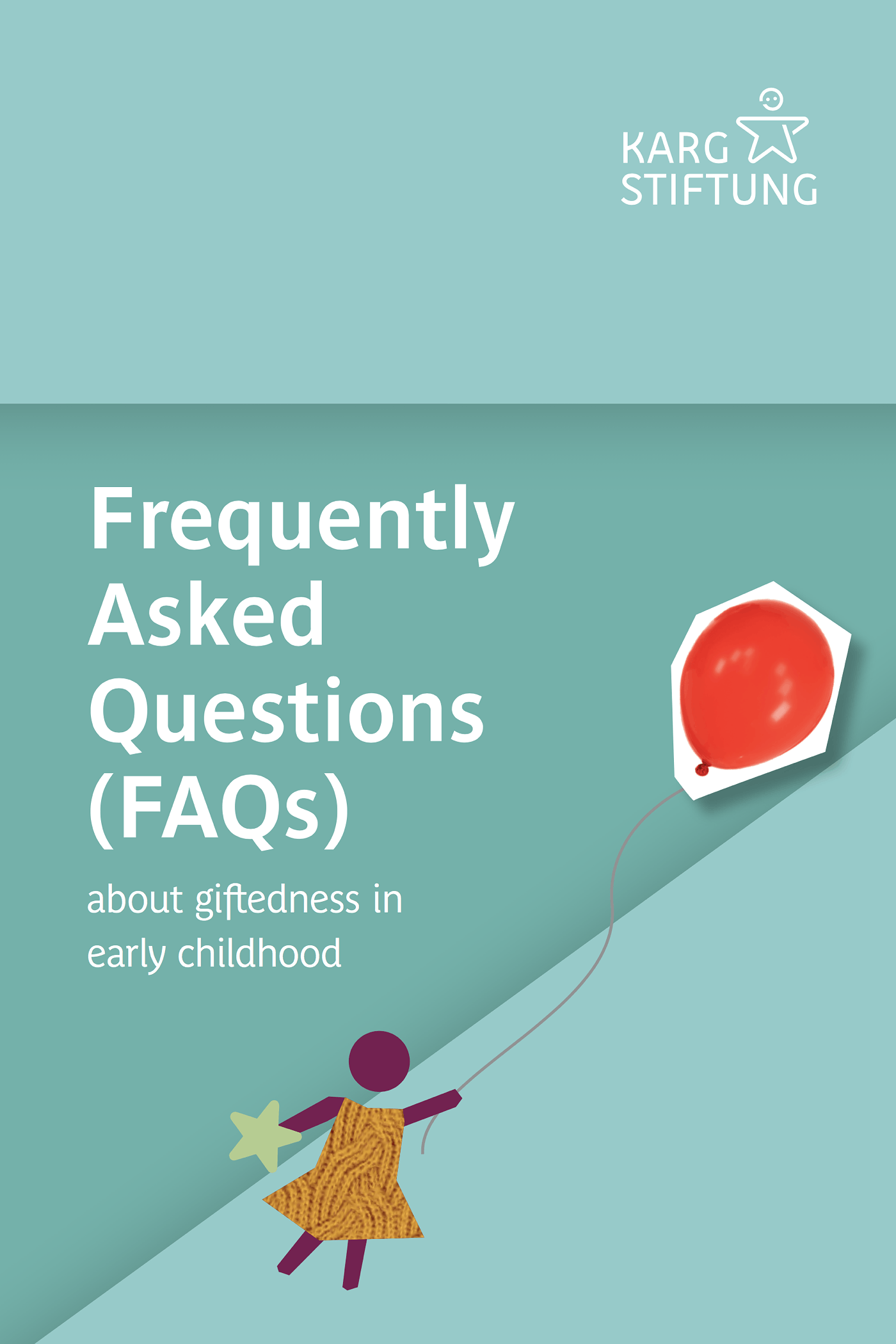Frequently Asked Questions (FAQs) about giftedness in early childhood
Giftedness, high ability – what does this mean?
In everyday language, the terms “gifted” and “high ability” have many different meanings: They are used when a person performs exceptionally well, but also when a person is merely expected to perform exceptionally well based on his or her perceived potential. Sometimes, adults observe clear developmental advantages or capabilities that are not typical for the respective age group of young children and therefore presume that a child is gifted.
Scientifically, giftedness is understood as the performance-related development potential of a person. Of course, all people possess a certain degree of ability, and they can further develop this ability with the right support. However, in the strictest sense of the term, people are primarily described as gifted if they demonstrate a high or above-average potential for both achievement and advancement. In this sense, the term “gifted” refers to persons with a particularly high or significantly above-average potential for achievement.
For children between the ages of zero and six, it is not possible to precisely determine whether they display giftedness or high ability for a variety of reasons. Therefore, it may be appropriate to refer to them as having an above average or significantly above average potential for achievement.

